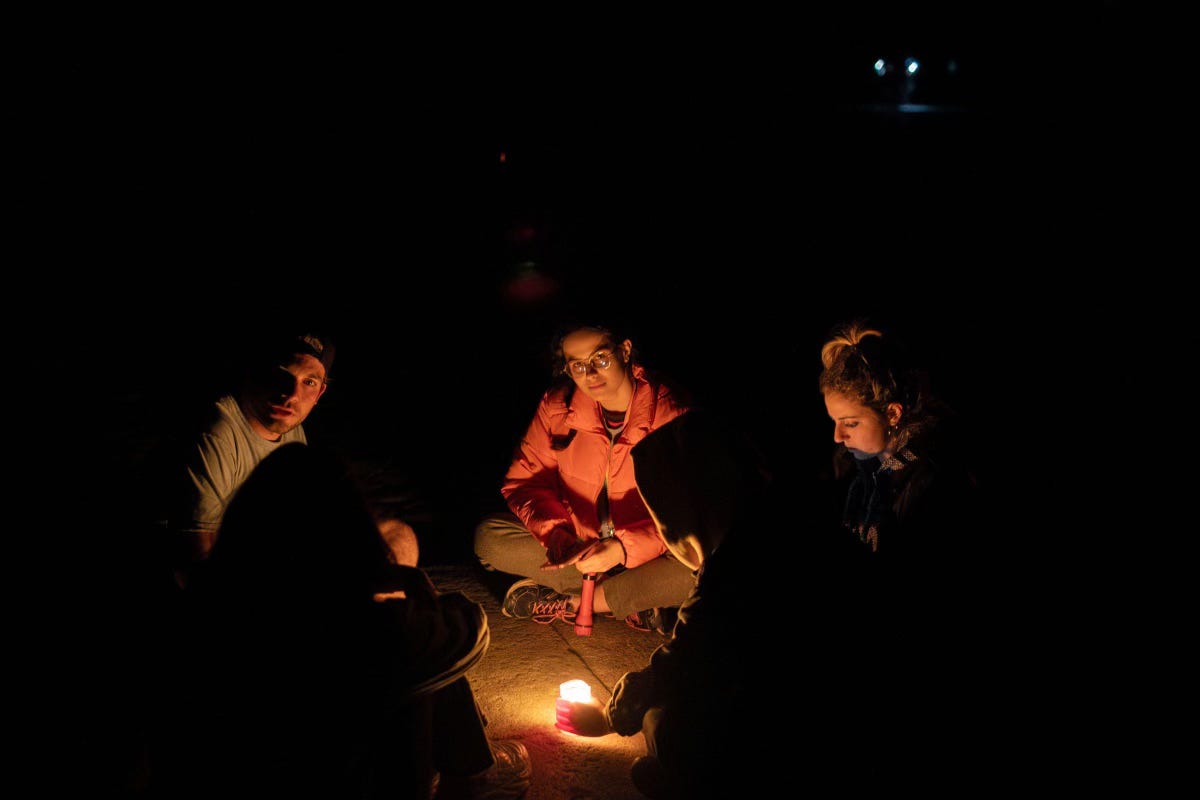
European officials are scrambling to solve the mystery of what caused Monday’s mass blackout that plunged millions across Spain, Portugal and parts of France into darkness.
Grid operators in the region confirmed today that the electricity system is now stable and working normally again, after yesterday’s debilitating outage left nearly all of the Iberian peninsula without power, grounding planes, halting public transportation, shutting schools and forcing hospitals to restrict routine proceedings.
While schools and offices have re-opened and public transport has re-started, big questions remain about what exactly led to the disruption.
Portugal’s government has ruled out a cyberattack as the cause, saying there seems to have been an “issue in the power transmission network” in Spain. Spanish grid operator REE has, from its preliminary assessment, come to the same conclusion.
Speaking to reporters, REE officials said today that the Iberian peninsula suffered a total blackout on Monday after the electricity system was hit by a dramatic loss of power generation in southwestern Spain. Electric grids, they explained, suffered two “disconnection events”; the systems recovered from the first, but the second, which came seconds later, triggered a massive loss of power, causing the grid to cascade into collapse, and resulting in a breakdown of its interconnection with France.
REE’s system operations chief, Eduardo Prieto, told a news briefing that it was “very likely” that the affected power generation was from solar plants, but added that he lacked the data to say so conclusively.
Under Prime Minister Pedro Sánchez, the Spanish government has embarked on a mission to make Madrid a “driving force” of renewable energy. Almost 60 per cent of Spain’s electricity came from renewable sources last year and its total wind generation capacity has doubled since 2008 while solar energy capacity has increased by a factor of eight over the same period, making Spain the EU member state with the second-largest renewable energy infrastructure, after Germany.
And, when it comes to its economic record, Spain’s left-wing government – which has enthusiastically embraced both green policies and high immigration – has proven many of its critics wrong.
Back in February, Tortoise’s Serena Cesareo labelled Spain “an expected success story worth paying attention to”, pointing to the fact that the Spanish economy was the fastest growing in the rich world last year. Its 3.2 per cent GDP growth was higher than America’s, three times that of Britain’s, and four time the EU average. Meanwhile, unemployment has fallen to its lowest level since 2008.
What’s more, Spain has embraced green energy all the while paying one of the lowest prices for electricity in Europe. A stark difference from Britain where concern is growing that green policies are incompatible with affordable energy prices. Only today, former PM Tony Blair added to the net zero backlash in Britain, calling on the government to focus less on renewables and more on technological solutions like carbon capture. Those in the UK, he insisted, are “being asked to make financial sacrifices and changes in lifestyle when they know that their impact on global emissions is minimal”.
While Spain is doing a better job at Britain at making its green policies look economically viable, Monday’s mass blackout has drawn attention to fears that the volatility of supply from solar or wind has left the country’s power grid prone to disturbances.
Back in February, Redeia, which owns REE, warned in its annual report that it faced a risk of “disconnections due to the high penetration of renewables without the technical capacities necessary for an adequate response in the face of disturbances”.
As Professor Miguel de Simón Martín of the University of León explained today, “unlike hydro or thermal generators, wind and [solar] systems do not have inertia, as they are connected to the grid via power electronics”. Meaning: “our grid is today more vulnerable and has less room to react to disturbances.”
Grid inertia – which solar panels and wind turbines lack – is created by generators with spinning parts, such as turbines running in fossil fuel generators or hydropower, and is what helps to maintain electricity supplies at a stable frequency. In a blackout, you need to rebuild inertia before bringing things back online.
Leading up to Monday’s outage, there are reports that the Spanish grid was running with very little inertia.
“We need quick, urgent answers,” Portugal’s Prime Minister Luis Montenegro told a press conference today, as he demanded “a full investigation of the outage’s causes”.
It would be premature to argue that the incident has shone a light on the perils of heavy reliance on solar power. The cause of the blackouts requires further investigation before making any sweeping conclusions.
But, once a proper investigation has been conducted, urgent action must be taken to prevent such incidents from becoming more commonplace.
According to estimates from RBC Capital Markets, even just a day of blackouts yesterday came at an economic cost of up to 4.5 billion euros.
Caitlin Allen
Deputy Editor
Adam Boulton
The BBC cannot afford any more scandals

READ HERE
Anthony Peters
I feel sorry for Canadians having Carney as PM

READ HERE
Canadians elect Carney – Mark Carney has been elected as Canada’s Prime Minister, extending the centre-left Liberal party’s stint in power. The former Bank of England governor and “anti-Trump” candidate used his victory speech to urge Canadians to “never forget the lessons [of] “American betrayal”.
Pakistan prepares for war – Pakistan’s defence minister has told Reuters that his country is reinforcing its military in anticipation of an “imminent” military incursion by India, as tensions between the two nuclear-armed nations soar following last week’s deadly attack on tourists in Kashmir.
Trump-Bezos tensions – The White House has accused Amazon of committing a “hostile and political act” after a report revealed that the e-commerce company is planning to inform customers of how much Donald Trump’s tariffs would cost them as they shopped.
-
Trump’s 100 days have been like no other, writes Bronwen Maddox in Chatham House
-
The Washington Post on the Vietnamese refugees who grew a “Little Saigon” in the shadow of the Pentagon
-
How Liverpool’s title win has completed a mysterious Fibonacci sequence, in BBC Future
-
COMPACT on Mark Carney’s progressive nationalism
-
The Conversation on Oshikatsu, the fandom phenomenon Japan hopes can boost its flagging economy
